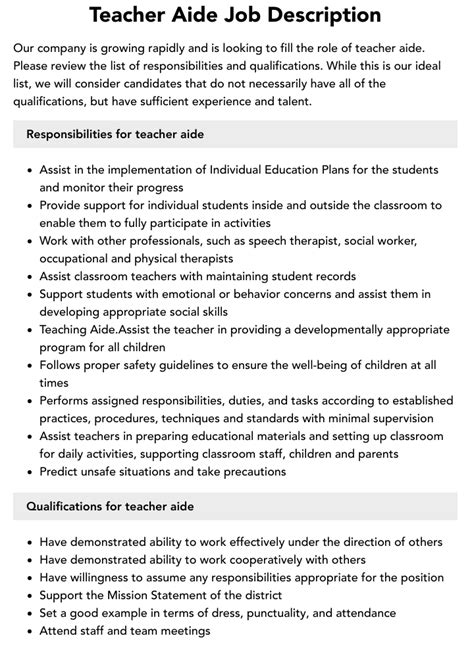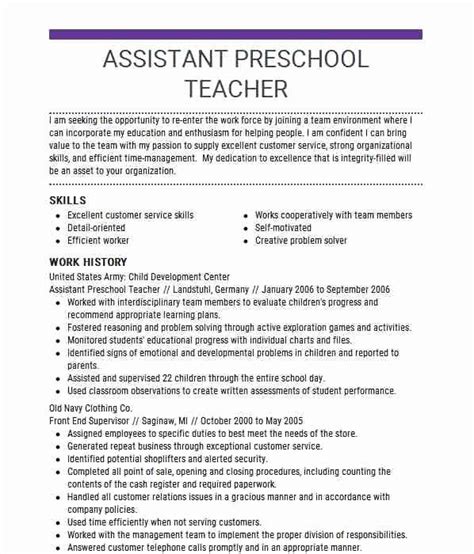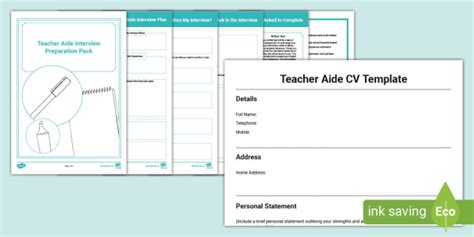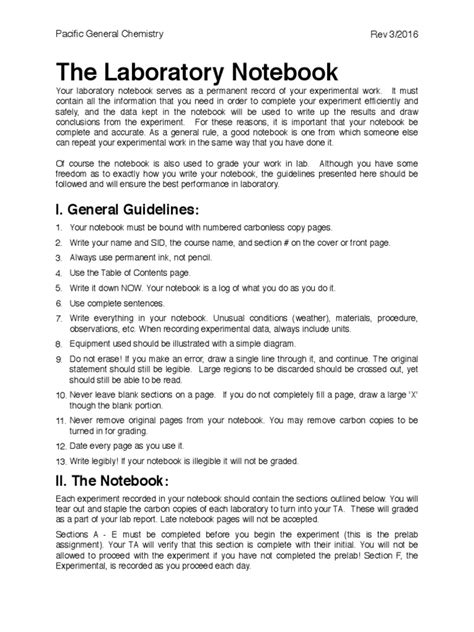Teacher Aide Careers

Introduction: The Vital Role of Teacher Aides in Modern Education

In the dynamic landscape of modern education, teacher aides play a pivotal role, providing essential support to teachers and enriching the learning experience for students. Their contributions are far-reaching, spanning from administrative tasks to individualized student support, making them an integral part of any educational institution.
This article delves into the multifaceted world of teacher aide careers, exploring the diverse roles, responsibilities, and opportunities that this profession offers. We will examine the qualifications, skills, and personal attributes that make for successful teacher aides, as well as the various paths to becoming one. Furthermore, we will discuss the rewards and challenges of this career, providing a comprehensive guide for those considering this noble profession.
By understanding the role and impact of teacher aides, we can appreciate their vital contribution to the education system and the positive influence they have on the lives of students. This article aims to shed light on this often-underestimated career path, offering valuable insights and practical advice for prospective teacher aides.
Understanding the Role of a Teacher Aide

Diverse Responsibilities and Tasks
The role of a teacher aide is multifaceted, encompassing a wide range of responsibilities that support both the teacher and the students. Their primary goal is to enhance the learning environment, ensuring that students receive the best possible education and support.
- Classroom Assistance: Teacher aides often work directly in the classroom, assisting teachers with day-to-day activities. This can include helping with lesson preparations, monitoring student progress, and providing additional support to students who need it.
- Student Support: One of the key roles of a teacher aide is to provide individualized attention to students. This may involve working with students who have special needs, helping them with specific tasks or assignments, or providing extra tuition to those who are struggling with a particular subject.
- Administrative Duties: Aides also handle administrative tasks, such as managing student records, preparing materials, and maintaining classroom organization. This ensures that the classroom runs smoothly and efficiently, allowing teachers to focus on their primary role of teaching.
- Communication and Collaboration: Effective communication is a vital skill for teacher aides. They often act as a bridge between teachers, students, and parents, ensuring clear and open lines of communication. Aides also collaborate closely with teachers to implement teaching strategies and adapt them to individual student needs.
Qualifications and Skills Needed
While the specific qualifications for teacher aides can vary based on the institution and region, there are several common requirements and skills that are highly valued in this profession.
- Education: Typically, teacher aides need a high school diploma or equivalent. However, many institutions prefer candidates with some form of post-secondary education, such as a certificate or diploma in education support or a related field. This provides a solid foundation of knowledge and skills for the role.
- Certifications and Training: In some cases, teacher aides may be required to obtain specific certifications or complete training programs. These can include first aid certification, behavior management training, or specialized courses in working with students with special needs.
- Skills and Attributes: Successful teacher aides possess a range of skills and personal attributes. These include strong communication skills, patience, flexibility, organizational abilities, and a passion for education and student welfare. Additionally, the ability to work well in a team and adapt to different teaching styles is highly beneficial.
Paths to Becoming a Teacher Aide
Formal Education and Training
Many teacher aides pursue formal education to gain the necessary skills and qualifications for their role. This can include enrolling in certificate or diploma programs specifically designed for teacher aides or education support workers. These programs typically cover a range of topics, such as classroom management, student behavior, teaching strategies, and communication skills.
| Program Type | Duration | Focus |
|---|---|---|
| Certificate in Education Support | 6 months to 1 year | Foundation skills for teacher aides |
| Diploma in Education Support | 1-2 years | Advanced skills and knowledge for leadership roles |

These programs often include practical components, allowing students to gain hands-on experience in a classroom setting. This can be a valuable opportunity to network with potential employers and gain references for future job applications.
On-the-Job Training and Experience
For some, becoming a teacher aide starts with gaining experience in the field. Many schools and educational institutions offer volunteer or entry-level positions that provide an opportunity to learn the ropes and develop the necessary skills. While these positions may not require formal qualifications, they can be a great way to gain a foot in the door and build a solid foundation for future career advancement.
Continuing Education and Professional Development
Once employed as a teacher aide, continuing education and professional development are crucial for career growth and maintaining high standards of practice. Many institutions encourage and support their teacher aides to pursue further education and training. This can include attending workshops, seminars, or conferences, as well as participating in online courses or certifications.
Rewards and Challenges of a Teacher Aide Career
The Rewards of Supporting Education
A career as a teacher aide is incredibly rewarding. The opportunity to directly impact the lives of students and contribute to their education and personal growth is a powerful motivator. Seeing students succeed and knowing that you played a role in their journey is a source of immense satisfaction.
- Making a Difference: Teacher aides have the unique opportunity to work closely with students, offering individualized support and guidance. This can lead to significant improvements in student learning and overall well-being.
- Team Collaboration: Working as part of a teaching team fosters a sense of camaraderie and shared purpose. Collaborating with teachers and other staff members can be enriching, as it allows for the exchange of ideas and best practices.
- Personal Growth: The role of a teacher aide provides numerous opportunities for personal and professional development. From gaining new skills to adapting to different teaching environments, this career path is a journey of continuous learning.
Navigating Challenges and Overcoming Obstacles
Like any profession, the role of a teacher aide comes with its own set of challenges. Understanding these challenges and developing strategies to overcome them is essential for a successful career.
- Dealing with Student Behavior: Managing student behavior and addressing disciplinary issues can be a challenging aspect of the job. Teacher aides need to remain calm, patient, and firm, employing effective strategies to guide students towards positive behavior.
- Handling Diverse Student Needs: Teacher aides often work with students from diverse backgrounds, with varying learning styles and needs. Adapting teaching strategies and providing individualized support can be demanding but highly rewarding.
- Administrative Workload: The administrative duties associated with the role can sometimes be overwhelming. Effective time management and organizational skills are crucial to ensuring that these tasks do not detract from the primary goal of supporting student learning.
Future Opportunities and Prospects

Career Growth and Advancement
The career path of a teacher aide is not limited to a single role. With experience and further education, there are numerous opportunities for advancement and specialization.
- Leadership Roles: Experienced teacher aides can take on leadership positions, such as team leader or head of education support, where they oversee a team of aides and provide guidance and support.
- Specialized Roles: Some teacher aides choose to specialize in specific areas, such as working with students with special needs or providing literacy or numeracy support. These specialized roles often require additional training and qualifications.
- Teacher Aide Supervisors: In larger institutions, teacher aide supervisors manage and coordinate the work of multiple aides, ensuring that their support aligns with the teaching strategies and student needs.
Expanding Horizons: Beyond the Classroom
The skills and experience gained as a teacher aide are transferable to a wide range of roles within and beyond the education sector. Here are some potential career paths that can be explored:
- Education Administration: Teacher aides can transition into administrative roles, such as school administrators or education officers, utilizing their organizational and management skills.
- Special Education: With specialized training, teacher aides can work in special education settings, providing support to students with disabilities or learning difficulties.
- Community Education Programs: The skills developed as a teacher aide can be applied in community education programs, such as after-school tutoring or adult education initiatives.
- Research and Policy Development: For those interested in shaping education policy, teacher aides can contribute their insights and experiences to research and policy development, ensuring that education practices are informed by real-world experiences.
Conclusion: A Fulfilling Career in Education Support
A career as a teacher aide offers a unique and rewarding opportunity to make a tangible difference in the lives of students. With a diverse range of responsibilities and the chance to collaborate with teachers and students, this role is both challenging and enriching.
By understanding the role, qualifications, and career paths available, prospective teacher aides can make informed decisions about their future. With the right skills, qualifications, and a passion for education, a career as a teacher aide can be an incredibly fulfilling journey.
Remember, the role of a teacher aide is not just about supporting teachers; it's about empowering students and fostering their growth and development. It is a career that demands dedication, patience, and a love for learning, but the rewards it offers are immeasurable.
FAQ
What are the key skills needed to be a successful teacher aide?
+
Successful teacher aides possess a range of skills, including strong communication skills, patience, flexibility, and organizational abilities. They should be able to work well in a team, adapt to different teaching styles, and have a genuine passion for education and student welfare.
How can I gain experience as a teacher aide without formal qualifications?
+
Many schools and institutions offer volunteer or entry-level positions that provide an opportunity to gain experience in the field. These positions can be a great way to learn the ropes and build a solid foundation for future career advancement.
What are the benefits of continuing education for teacher aides?
+
Continuing education enhances your skills, keeps you updated with the latest teaching strategies, and demonstrates a commitment to the profession. It can lead to career growth, improved job prospects, and increased job satisfaction.
Can teacher aides work in special education settings?
+
Yes, teacher aides can work in special education settings, providing support to students with disabilities or learning difficulties. However, specialized training and qualifications are often required for these roles.
What are some potential career paths beyond the role of a teacher aide?
+
With experience and further education, teacher aides can explore various career paths, including education administration, special education, community education programs, and even research and policy development in the education sector.



